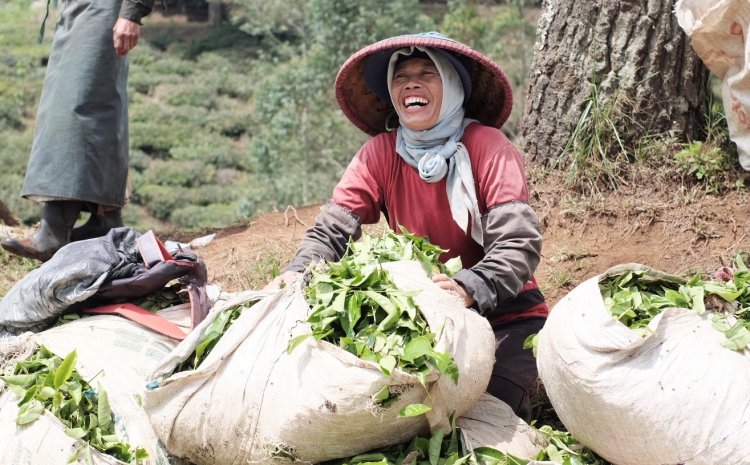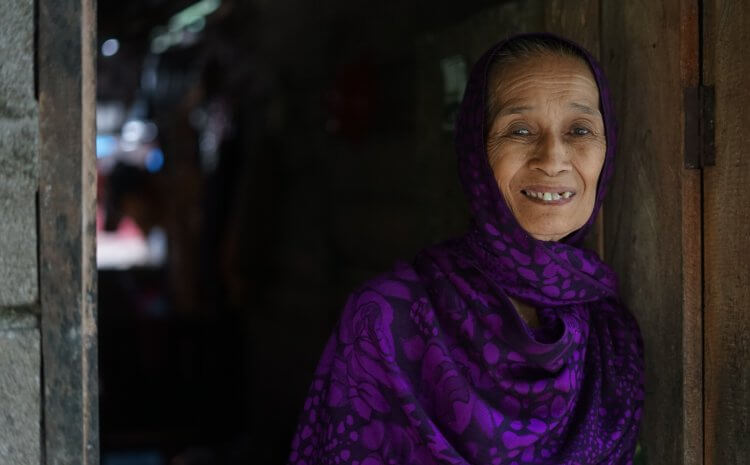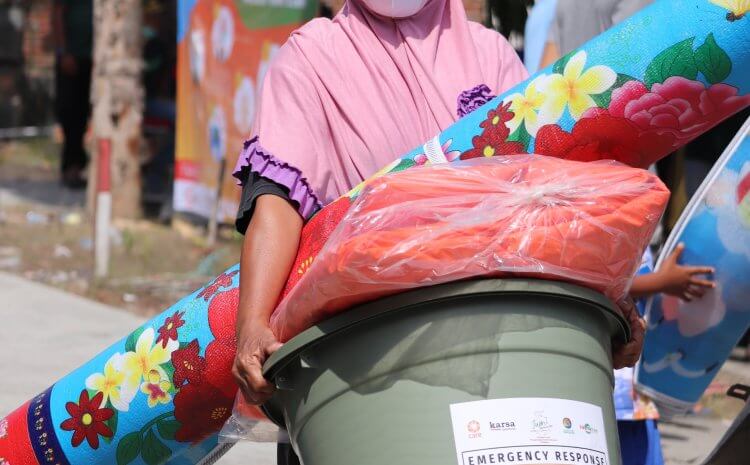The women of Sukaluyu village are equipped with various skills to improve their quality of life and future.
From morning till night, the life of Susi Suhaeni, 29, is filled with taking care of household matters and doing her job as a tea picker. She is one of around 900 tea pickers in Sukaluyu Village, Bandung Regency, who spend an average of 15 hours a day working in the tea garden and taking care of their families. They can only rest for a maximum of 6 hours, while the time for themselves is no more than 3 hours per day.
The income from picking tea is actually not much, but plays an important role to sustain the family economy. With that being not enough, many families dig new holes to cover old holes by constantly borrowing money from loan sharks.
“As a casual daily labour, I make around Rp.400,000 a month, depending on the number of tea leaves that can be picked. My husband is a scavenger whose average income is Rp. 700,000 a month. Our monthly expenditure is more than IDR 1 million, excluding paying our debts,” said Susi.
Susi was born and raised in a family dependent on tea plantations. Her grandfather used to be a security guard for the garden, while Susi’s mother is a tea picker with a permanent worker status. Her husband use to be a tea picker, but became a junk collector because the pay was very small during the dry season. Married at an early age, 13 years old, Susi gave birth to her first child at the age of 14. Her son is now a junior high school (SMP) student.
Susi’s life struggles and stress gradually improved after she joined a women’s empowerment program called Her Economic Empowerment, Our Pride Forever (HOPE) initiated by Yayasan CARE Peduli (YCP). This program aims to overcome three major challenges for female tea plantation workers in Sukaluyu. First, the lack of education which makes them less empowered in decision-making and sometimes becomes victims of sexual harassment. Second, the lack of financial literacy which makes it difficult for them to access resources at the family, community, and alternative financial service institutions. Third, they also lack knowledge of clean water and sanitation, which has a negative impact on themselves, especially reproduction health and their families.
To overcome this, a number of interventions were implemented in the program funded by the Starbucks Foundation. Participants received training on a variety of topics, including how to communicate, division of roles and tasks in the family, managing stress and time, problem solving, household finances, personal savings planning, and being active in the planning of water sanitation and hygiene and its implementation. When their capabilities have been built, they are expected to be actively involved in development planning and budgeting for village funds, so that they will benefit from it.

Susi says that she was happy to be able to participate in a series of HOPE activities. “Just like school again. I am happy to add my knowledge and learn together with other mothers, ”she said.
She has put what she learned into practice at home. For example, listening to more music in trying to manage stress. Susi also made priorities to her activities to divide her time more effectively between working in the tea garden, completing household matters, and attending HOPE classes.
For Yani Nurhaeni, 33 years old, the HOPE materials are very useful for her life. The former tea picker who is now a housewife is usually the only person doing all the domestic chores. As her communication skills improved, she is more able to communicate her intentions to her husband and her two children. The household chores are now divided more evenly among her family members, so that Yani can socialize with her friends and attend HOPE trainings.
“HOPE provides new knowledge and new
power that can change our lives. I try to share what I
get from HOPE with my friends too, ”she said.
The program also helps form groups of support systems and safe space for the participants. When studying with other women, they can share discussions more freely. Things like violence they may receive from their husbands, insufficient income from picking tea to cover family expenses, their children dropping out of school, to the fear of being evicted from their plantation houses if they no longer work there.
From YCP’s experience running programs in partnership with the private sector, a holistic approach to empowerment has generally benefited all stakeholders, both communities and companies. The HOPE program which lasted for two years up until November 2020 is expected to have such a positive impact as well. In order to increase the benefit, YCP hopes that similar programs can also be implemented in other tea plantations in Sukaluyu.
Empowerment of Women in Tea Plantations (Her Economic Empowerment, Our Pride Forever / HOPE)
Objective: Help women and girls living around tea plantations obtain a good quality of life through personal capacity enhancement, economic empowerment, as well as improving the quality of water sanitation and hygiene
Duration: November 2018-November 2020
Location: Sukaluyu Village, Bandung Regency
Target number of beneficiaries: 8,909 people
Funding support: Starbucks Foundation


















